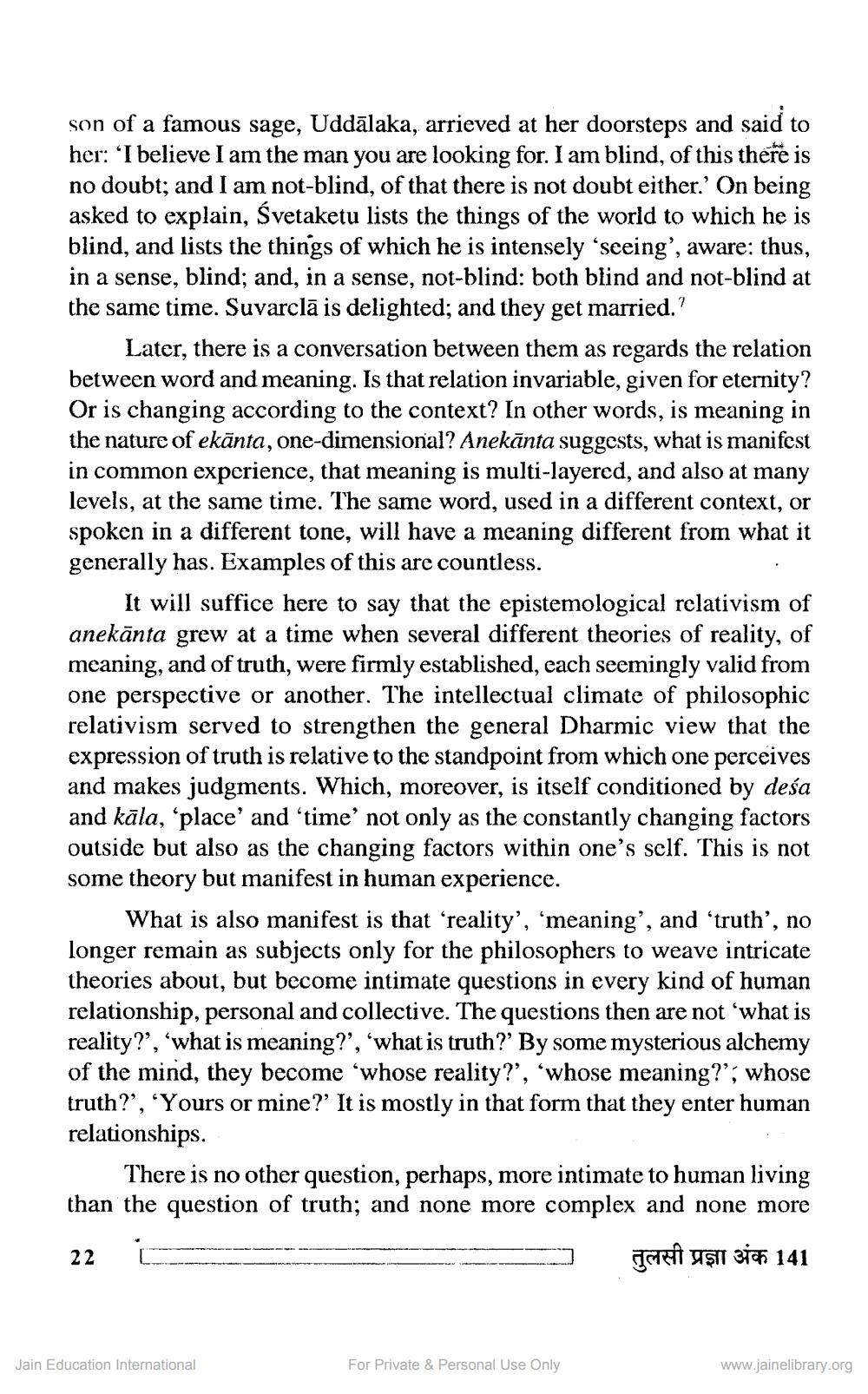________________
son of a famous sage, Uddālaka, arrieved at her doorsteps and said to her: 'I believe I am the man you are looking for. I am blind, of this there is no doubt; and I am not-blind, of that there is not doubt either.' On being asked to explain, Svetaketu lists the things of the world to which he is blind, and lists the things of which he is intensely ‘seeing', aware: thus, in a sense, blind; and, in a sense, not-blind: both blind and not-blind at the same time. Suvarclā is delighted; and they get married.'
Later, there is a conversation between them as regards the relation between word and meaning. Is that relation invariable, given for eternity? Or is changing according to the context? In other words, is meaning in the nature of ekānta, one-dimensional? Anekānta suggests, what is manifest in common experience, that meaning is multi-layered, and also at many levels, at the same time. The same word, used in a different context, or spoken in a different tone, will have a meaning different from what it generally has. Examples of this are countless.
It will suffice here to say that the epistemological relativism of anekānta grew at a time when several different theories of reality, of meaning, and of truth, were firmly established, each seemingly valid from one perspective or another. The intellectual climate of philosophic relativism served to strengthen the general Dharmic view that the expression of truth is relative to the standpoint from which one perceives and makes judgments. Which, moreover, is itself conditioned by desa and kāla, 'place' and 'time' not only as the constantly changing factors outside but also as the changing factors within one's self. This is not some theory but manifest in human experience.
What is also manifest is that ‘reality', 'meaning', and 'truth’, no longer remain as subjects only for the philosophers to weave intricate theories about, but become intimate questions in every kind of human relationship, personal and collective. The questions then are not 'what is reality?', 'what is meaning?', 'what is truth?' By some mysterious alchemy of the mind, they become 'whose reality?', 'whose meaning?', whose truth?', 'Yours or mine?' It is mostly in that form that they enter human relationships.
There is no other question, perhaps, more intimate to human living than the question of truth; and none more complex and none more
TAI UŞII 312 141
;
22
Jain Education International
For Private & Personal Use Only
www.jainelibrary.org




